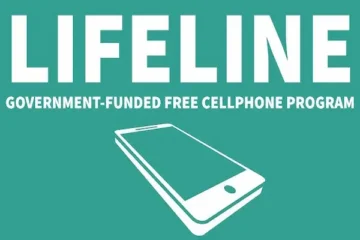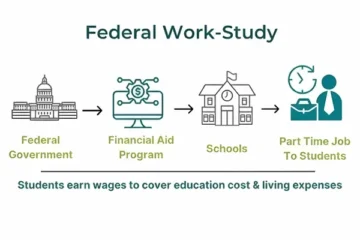Electrical engineer online courses: How to apply for free
See how to apply for electrical engineer online courses.
Advertising
Flexible and accessible for all!
Step-by-Step Guide to Enrolling in Online Electrical Engineering Courses
Online education has revolutionized access to quality knowledge and skill-building, especially for technical fields like electrical engineering.
Whether you’re starting your career from scratch, seeking to complement academic studies, preparing for job market demands, or transitioning to a new specialty within engineering, free online courses offer a world of opportunities.
In this guide, you’ll find a comprehensive breakdown of how to begin your journey with electrical engineer online courses, entirely for free.
Let’s dive into each step of the process and explore how to make the most out of the experience.
Step 1: Choose a Learning Platform
Before anything else, you need to choose a reliable and recognized online learning platform.
The internet is filled with websites offering courses, but not all provide content from credible instructors or institutions.
Some of the most trusted names include:
- Coursera (in partnership with top universities like Stanford and Duke)
- edX (developed by Harvard and MIT)
- Alison (focused on certifications and accessible learning)
- FutureLearn (UK-based, with university collaborations)
Explore the interface of each platform to find one that fits your language preferences, learning style, and long-term goals.
Look for reviews, ratings, and filters that allow you to quickly identify high-quality programs.
Choosing the right platform will make your learning experience smoother and more enjoyable.
Step 2: Search for Online Electrical Engineering Courses
After choosing your platform, use its internal search bar to look for keywords such as:
- “Electrical Engineering”
- “Electric Circuits”
- “Digital Electronics”
- “Power Systems”
- “Renewable Energy Systems”
- “Signal Processing”
- “Embedded Systems”
Use filters to narrow down your results by:
- Skill Level: Beginner, Intermediate, Advanced
- Duration: Short-term, multi-week, or semester-long
- Language: Ensure the course is in a language you’re comfortable with
- Availability: Look for ongoing or upcoming start dates
Spend time reading through course titles, objectives, and instructor bios.
Watch preview videos if available — they often reveal the tone and structure of the course.
Step 3: Review Course Requirements
Once you shortlist a few courses, read all available details on their landing pages.
Every good course outlines what students need before starting. This may include:
- Mathematical Knowledge: Basic algebra, trigonometry, or calculus
- Physics Understanding: Concepts like energy, voltage, and current
- Computer Skills: Ability to install software or use spreadsheets
- Equipment: Some advanced courses may require simulation tools or virtual labs
You’ll also find details about estimated time per week, the course format (video, reading, assessments), and support available from instructors or mentors.
Avoid skipping this step, as it helps set clear expectations and reduces drop-out risk later.
Step 4: Create a Free Account
Every major online platform requires registration.
You can usually sign up using:
- Email address
- Google account
- Facebook or Apple ID
A free account grants you access to all audit-mode content and saves your progress as you move through modules.
You may also receive notifications about course updates, deadlines, and recommendations for similar content.
Be sure to use a valid email address and set up your profile for future job networking or certification display.
Step 5: Enroll in the Course
Once you find a course and register, it’s time to enroll.
Most platforms give you two or more enrollment options:
- Audit/Free Mode: Full access to lectures and materials without grading or certification
- Verified/Paid Mode: Includes tests, feedback, a digital certificate, and sometimes instructor interaction
If your goal is to learn without spending, select the “audit,” “free,” or “no certificate” option.
Note: Some platforms limit free access to a number of weeks or hide assessments unless you pay.
Plan your schedule to make the most of free access periods.
Step 6: Access Course Materials
Now you’re officially enrolled.
Begin accessing your materials, which typically include:
- Video Lectures
- PDF or eBook Readings
- Practice Quizzes and Final Tests
- Discussion Boards and Peer Chatrooms
- Downloadable Notes and Transcripts
Create a study calendar or use digital planners like Notion, Trello, or Google Calendar to stay on track.
Take handwritten or typed notes during lessons to reinforce memory.
Stay active in forums to clarify doubts and help others — teaching strengthens understanding.
What to Expect from Online Electrical Engineering Courses
Online courses are designed to be informative, flexible, and accessible.
You won’t be left on your own. Each element is crafted to mimic academic learning in a digital format.
Here’s what a complete course typically offers:
Key Topics Covered
Depending on your selected course, here are some areas you may study:
- Basic Electricity & Circuits: Ohm’s Law, Kirchhoff’s Law, and series-parallel analysis
- Electronics: Diodes, transistors, amplifiers
- Power Generation & Transmission: AC/DC systems, transformers, smart grids
- Renewable Energy: Solar power, wind turbines, energy storage systems
- Control Systems: Sensors, feedback loops, industrial automation
- Microcontrollers & Embedded Systems: Arduino, Raspberry Pi, I/O programming
- Signal Processing: Fourier transforms, filtering, analog-to-digital conversion
Courses mix theory with visuals, practice questions, simulations, and real-world case studies.
Self-Paced Learning
You are in control of your schedule.
Pause a video, rewatch difficult sections, or skip ahead if you’re already familiar with a topic.
Most platforms allow lifetime or timed access to content, depending on the course model.
If you’re studying while working, self-paced lessons allow better time management and less burnout.
Use the flexibility to build consistency — even 20 minutes daily adds up.
Hands-On Projects and Simulations
You won’t only read and watch — you’ll build, simulate, and troubleshoot.
Popular interactive experiences include:
- LTSpice & Multisim: Simulate analog and digital circuits
- Tinkercad Circuits: Browser-based visual learning
- Capstone Projects: Build real power supply circuits or logic boards
- Code & Debug: Program microcontrollers to automate systems
Some courses offer downloadable tools or use browser-based apps.
These activities help you understand concepts more deeply and develop practical skills employers look for.
Certification and Career Advancement
Most platforms offer paid certifications, but some allow free downloads upon completion.
Certificates can:
- Be added to your LinkedIn profile
- Help with job applications or promotions
- Boost confidence and resume quality
- Fulfill professional development hour requirements
While not mandatory, certifications demonstrate commitment and skill development to employers.
You can also use them to build an online portfolio.
Where to Find Free Online Electrical Engineering Courses
Let’s take a deeper look at some platforms that stand out.
Each one has its own advantages, structure, and audience.
Coursera
Backed by world-class universities, Coursera offers free access to course content with the option to upgrade for certificates.
Most courses last 4-8 weeks and include quizzes, lectures, and peer-graded projects.
Popular options:
- “Introduction to Electronics” — Georgia Tech
- “Fundamentals of Electrical Engineering” — Rice University
- “Electric Power Systems” — University at Buffalo
Courses are in English, often with subtitles in Portuguese, Spanish, and other languages.
edX
edX is a nonprofit founded by MIT and Harvard and offers highly academic course structures.
Free audits include full lectures and readings; assignments and certificates are paid.
Highlights include:
- “Circuits and Electronics” — MITx
- “Digital Systems: From Logic Gates to Processors” — UC3M
- “Renewable Energy: Solar Energy” — TU Delft
Great for students aiming for academic or research careers.
Alison
Alison is fully free, including assessment and certificate download (with ads).
Courses are shorter and ideal for entry-level learners or those refreshing old knowledge.
Key courses:
- “Diploma in Electrical Studies”
- “Introduction to Electrical Wiring Systems”
- “Understanding Solar Energy Systems”
The site is user-friendly and offers certificates and diplomas based on completion.
FutureLearn
This UK-based platform offers structured courses in partnership with universities.
Free access lasts for several weeks, enough to complete short programs.
Recommended courses:
- “Electrical Engineering for Everyone” — Open University
- “Smart Cities: The Role of Technology” — University of Adelaide
- “Sustainable Energy Futures” — University of Exeter
Ideal for those who enjoy collaboration, as courses include comment threads for every lesson.
Our Opinion
Electrical engineer online courses are breaking down barriers and helping people gain critical STEM skills globally.
What once required university tuition is now available at your fingertips — for free.
Whether you want to enter the engineering field, switch industries, or understand the technology shaping our world, these courses are a gateway.
Here are our final tips:
- Don’t hesitate to start with basic courses, even if you already know some material.
- Be consistent with your study schedule.
- Apply what you learn through DIY kits, projects, or volunteering.
- Use forums and discussion boards to connect and grow.
- Collect certificates and build a digital portfolio.
With time and effort, these online electrical engineering courses can truly light the way toward a more empowered future.





